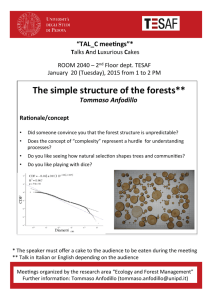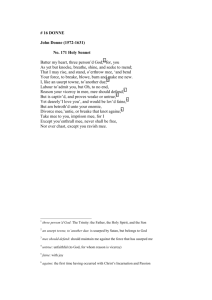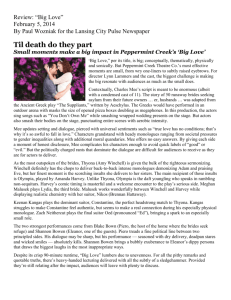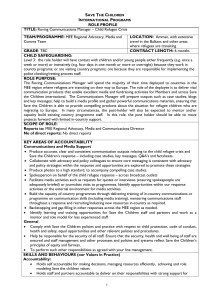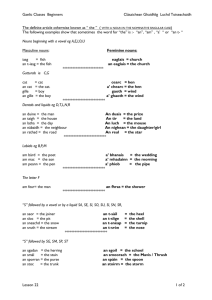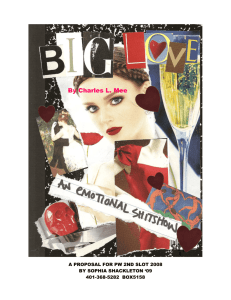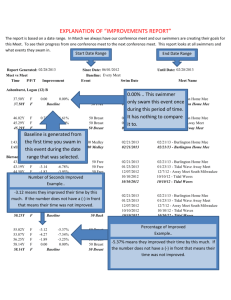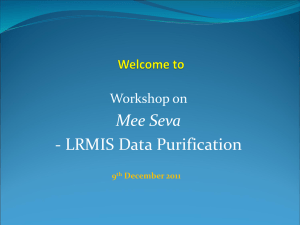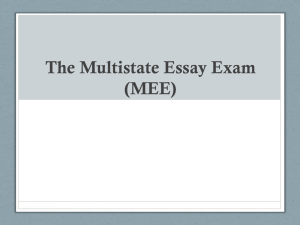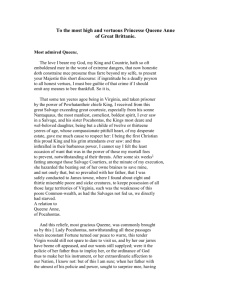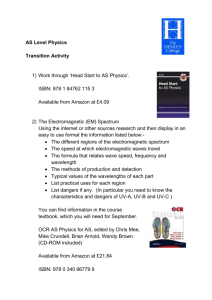Interview with Charles Mee - Actors Theatre of Louisville
advertisement
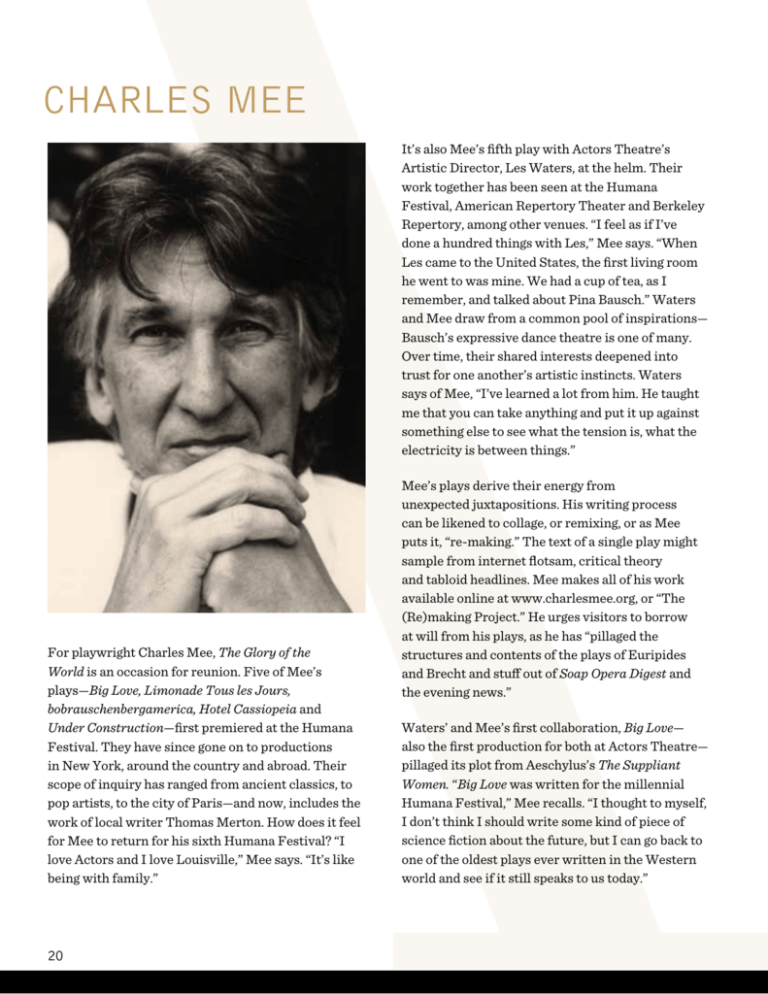
Charles Mee It’s also Mee’s fifth play with Actors Theatre’s Artistic Director, Les Waters, at the helm. Their work together has been seen at the Humana Festival, American Repertory Theater and Berkeley Repertory, among other venues. “I feel as if I’ve done a hundred things with Les,” Mee says. “When Les came to the United States, the first living room he went to was mine. We had a cup of tea, as I remember, and talked about Pina Bausch.” Waters and Mee draw from a common pool of inspirations— Bausch’s expressive dance theatre is one of many. Over time, their shared interests deepened into trust for one another’s artistic instincts. Waters says of Mee, “I’ve learned a lot from him. He taught me that you can take anything and put it up against something else to see what the tension is, what the electricity is between things.” For playwright Charles Mee, The Glory of the World is an occasion for reunion. Five of Mee’s plays—Big Love, Limonade Tous les Jours, bobrauschenbergamerica, Hotel Cassiopeia and Under Construction—first premiered at the Humana Festival. They have since gone on to productions in New York, around the country and abroad. Their scope of inquiry has ranged from ancient classics, to pop artists, to the city of Paris—and now, includes the work of local writer Thomas Merton. How does it feel for Mee to return for his sixth Humana Festival? “I love Actors and I love Louisville,” Mee says. “It’s like being with family.” 20 Mee’s plays derive their energy from unexpected juxtapositions. His writing process can be likened to collage, or remixing, or as Mee puts it, “re-making.” The text of a single play might sample from internet flotsam, critical theory and tabloid headlines. Mee makes all of his work available online at www.charlesmee.org, or “The (Re)making Project.” He urges visitors to borrow at will from his plays, as he has “pillaged the structures and contents of the plays of Euripides and Brecht and stuff out of Soap Opera Digest and the evening news.” Waters’ and Mee’s first collaboration, Big Love— also the first production for both at Actors Theatre— pillaged its plot from Aeschylus’s The Suppliant Women. “Big Love was written for the millennial Humana Festival,” Mee recalls. “I thought to myself, I don’t think I should write some kind of piece of science fiction about the future, but I can go back to one of the oldest plays ever written in the Western world and see if it still speaks to us today.” Big Love’s updated take on Aeschylus’s story of fifty runaway brides and their pursuant grooms explores both the political implications and the emotional transcendence of love. The play proved to be a hit and went on to numerous theatres, including the Brooklyn Academy of Music. I love Actors and I love Louisville. It’s like being with family. Mee then wrote bobrauschenbergamerica—a centerpiece of the 2001 Humana Festival, staged by Anne Bogart with SITI Company— in honor of Robert Rauschenberg. In Rauschenberg’s collages, Mee found an analogue for his own work. “Rauschenberg would pick up junk off the sidewalk and then stick it onto his canvas. He felt that, because it was all part of the world that he walked through and lived in, it was coherent—even if he didn’t know in what way,” Mee explains. Many of Mee’s Humana Festival plays have used the work of an artist as their structural logic. Hotel Cassiopeia (2006) builds itself around the compositions of Joseph Cornell; Under Construction (2009) pits the nostalgia of Norman Rockwell against the provocative installations of Jason Rhoades. With The Glory of the World, Mee examines the legacy of a writer rather than a visual artist. However, the play still takes inspiration from a singular thought process—its associative style bears traces of Merton’s meandering, meditative path to discovery. Mee’s contributions to the American theatre have earned him accolades, including the Lifetime Achievement Award in Drama from the American Academy of Arts and Letters. Coming up for Mee are two premieres, in addition to revivals of his best-known work. Daily Life Everlasting will be seen at La MaMa—one of the Off-Off-Broadway theatres where Mee first got his start in the 1960s. His Global Warming debuts in a site-specific production in the Gowanus Canal, described by Mee as “one of the ultimate toxic waste dumps in America.” The play takes place over the course of an urbane dinner party. As the diners sip their cocktails, the waters around them are starting to rise. By the play’s end, all are drowned. Big Love plays at New York’s Signature Theatre this spring; meanwhile, Mee is working on a dance theatre piece with Broadway musical director Susan Stroman. “It’s a lot,” he admits. But even after decades in the theatre, seeing one of his plays produced is still a delight. “Each time, I’ll be hearing it almost as if it were brand new,” Mee insists. “It’s totally weird, but that is where an awful lot of the pleasure comes from.” —Ariel Sibert 21 21
